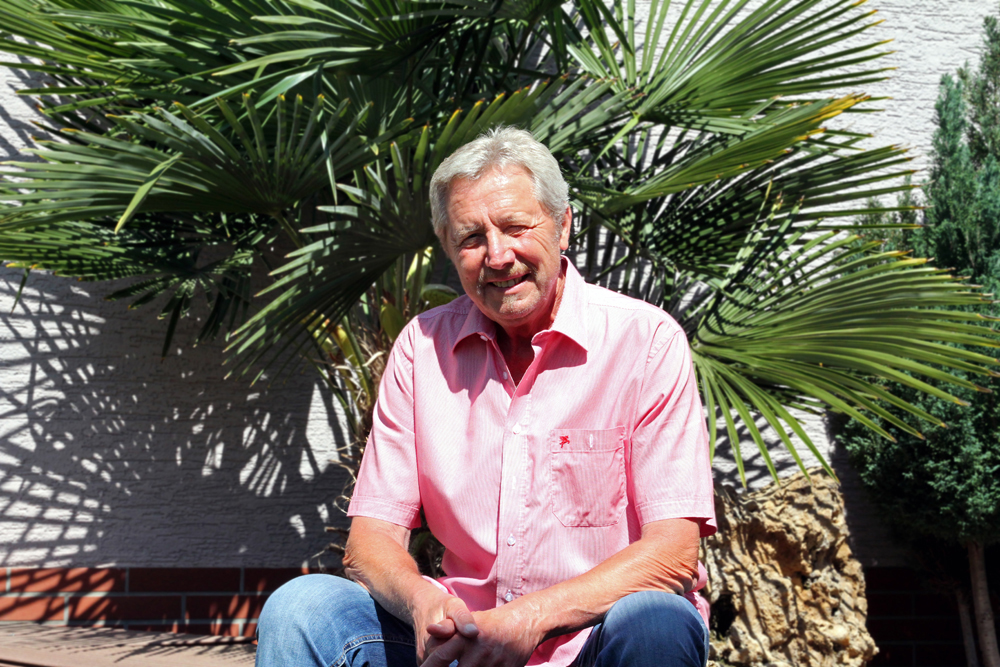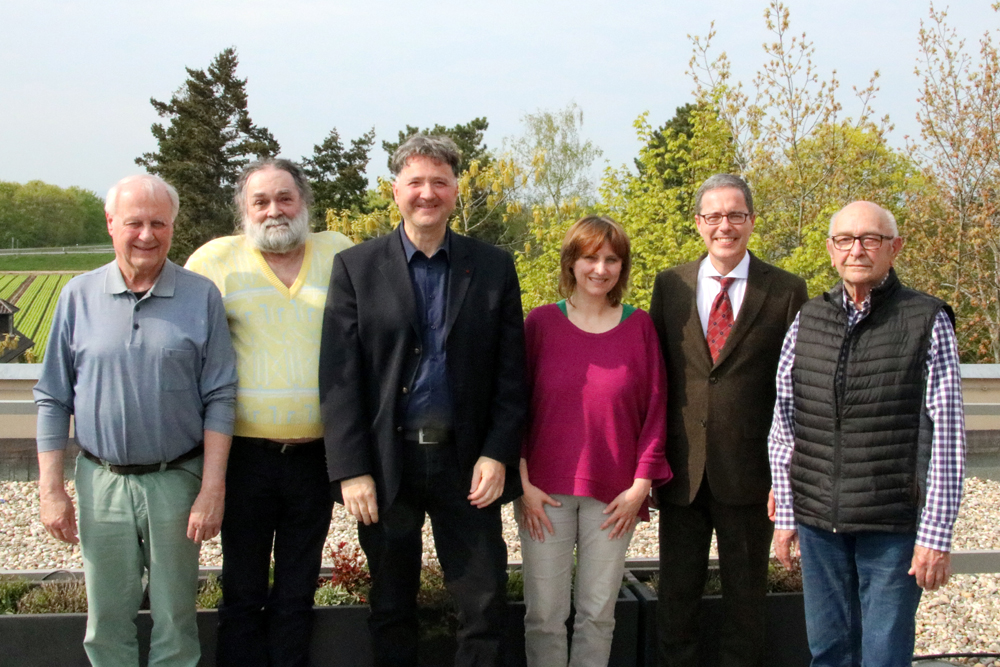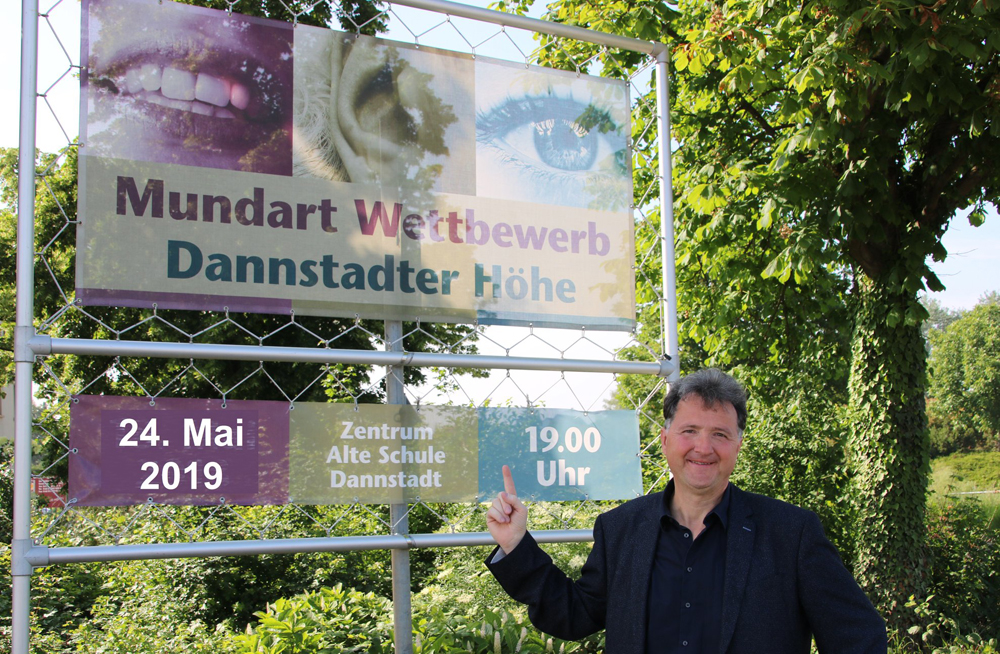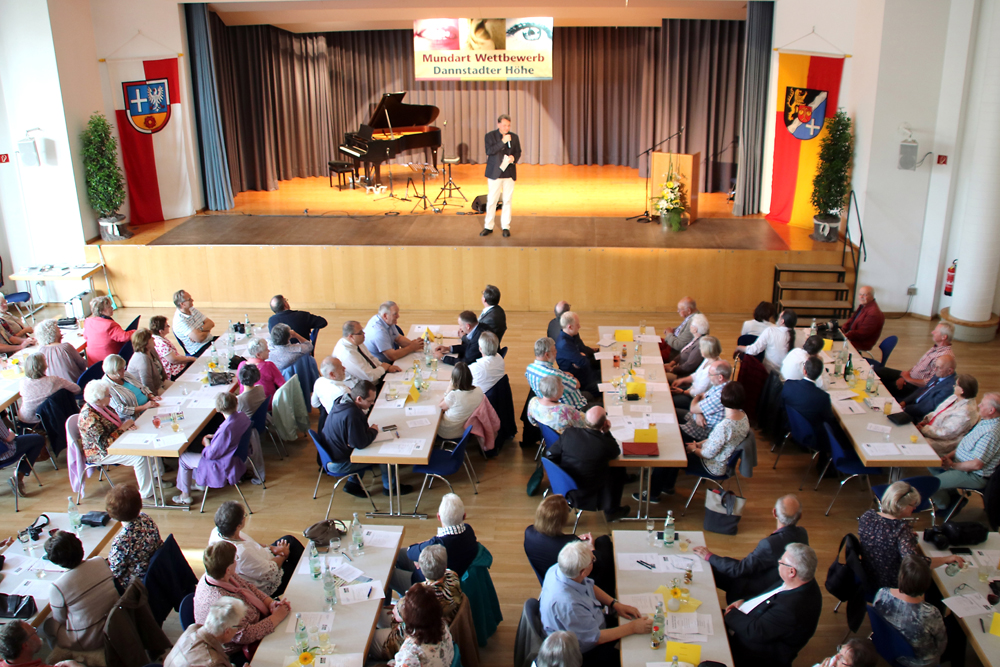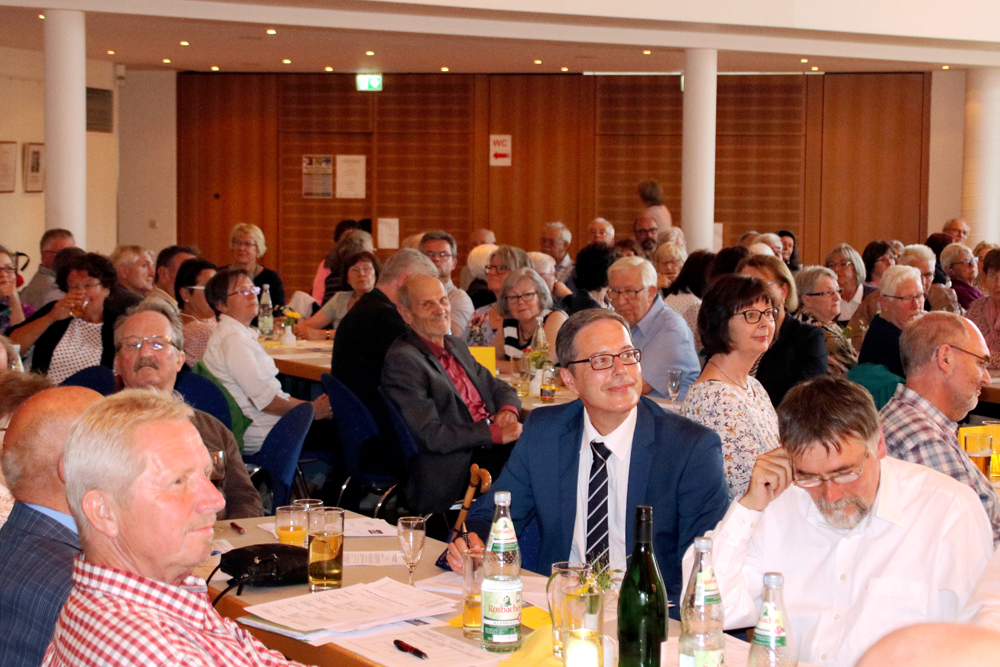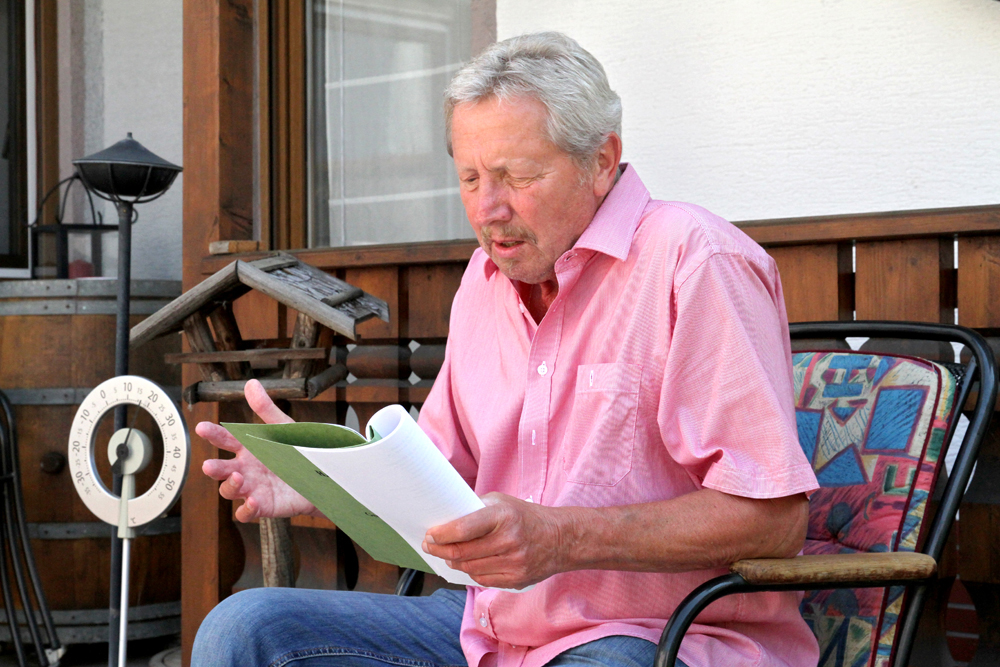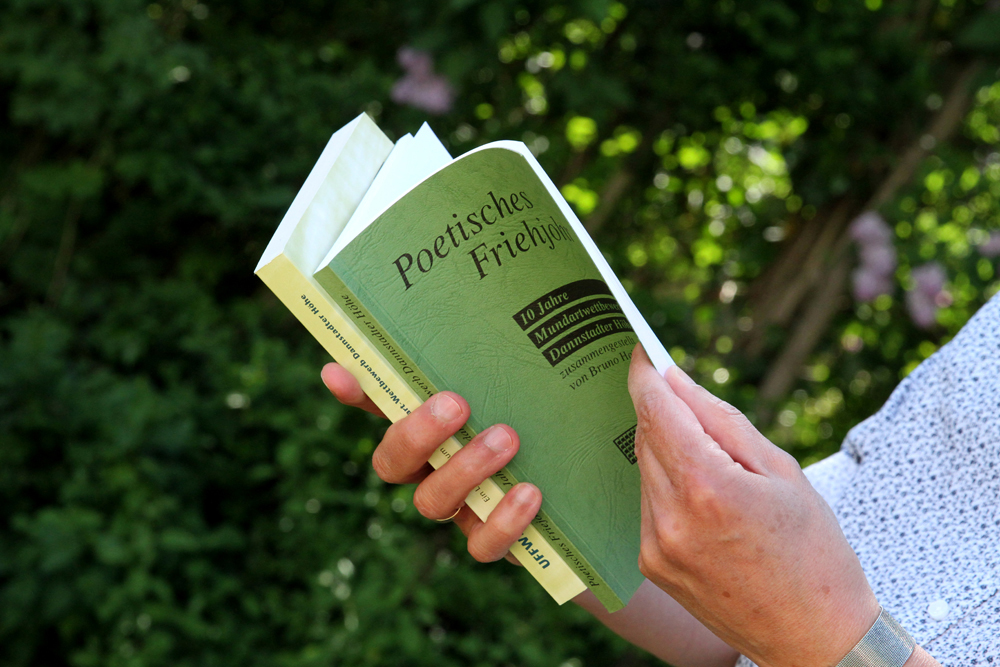“So as not to become extinct, a dialect must be nurtured,” says Ralf Frohnhäuser. This is one reason why he has become a member of the jury of the dialect competition called ‘Mundart-Wettbewerb Dannstadter Höhe’ that Toni Ostermayer won a number of times. Both speakers find that Pälzisch (pronounced: paltsish), the dialect native to the Palatinate, directly reaches the heart, and even Pennsylvania.
It arrived a few days ago: a thick, inconspicuous envelope, sent to him by Ute Günther from the town hall in Dannstadt-Schauernheim. Ralf Frohnhäuser holds the envelope in his hands like a trophy and feels its weight contentedly. He wanted to wait until he has sufficient time and silence to open it. It is weekend now and in the garden around his house in Hochdorf-Assenheim there is no noise but bird chirping and an occasional scraping sound by two tortoises in their enclosure. With a big smile on his face, Ralf opens the envelope in a ceremonial atmosphere: “I look forward to this moment every year,” even if it means a lot of work lying ahead of him. 51 poems and 22 pieces of prose packed in the envelope – all of them written “uff Pälzisch” (in Palatine dialect). Ralf will read every single work at least three times, many of them much more often.”
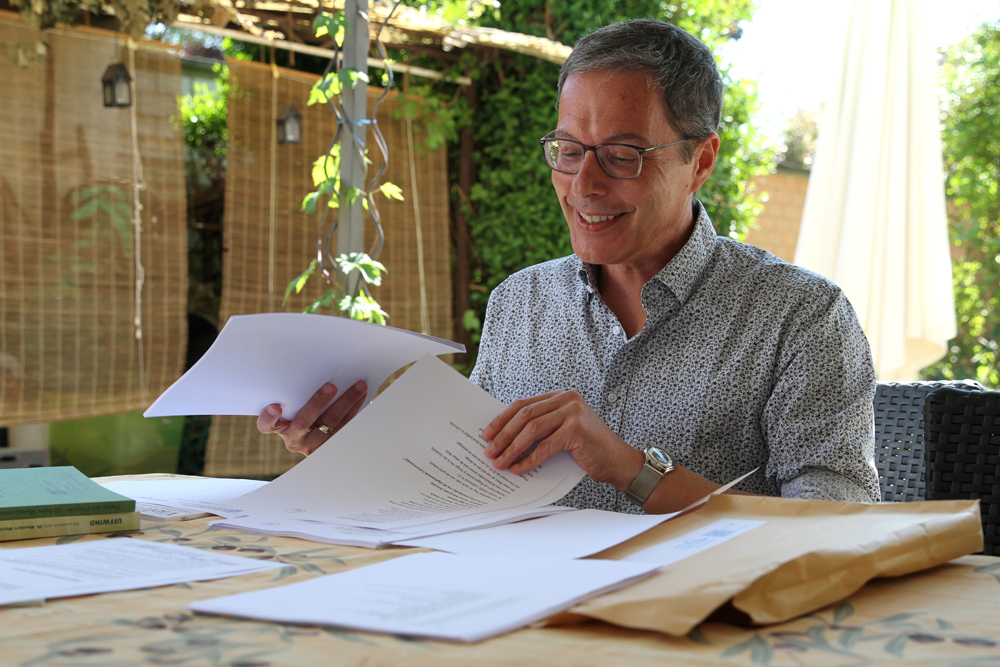
51 poems and 22 pieces of prose packed in the envelope – all of them written “uff Pälzisch” (in Palatine dialect)
He has been a member of the jury of the dialect competition in Dannstadter Höhe since 2016. It is a task he does with passion—and with gratitude. “I accepted straight away when the mayor, Stefan Veth, asked me if I would like to join the jury.” Ralf is the director of the Grundschule Am Neuberg primary school in Rödersheim-Gronau. He supports local clubs with lots of commitment. And he goes into raptures about the “pleasant spirit of community” in the villages. Ralf is proud of contributing to keeping alive and celebrating the local dialect every year in the municipality. “So as not to become extinct, a dialect must be nurtured,” he says, because it is much more than just daily language. It means home and belonging, history, live style characteristics and humour as well. All of this is inherent in the texts lying in front of him now. He doesn’t know by whom they are written—they are just numbered. But he does know: There would be one by Toni Ostermayer among them.
The native of Rödersheim is a pioneering poet and repeatedly won the competition. He even took part in the event format that preceded the official competition in 1987. That year, the local men’s singing club ‘Frohsinn Rödersheim’ celebrated its 100th anniversary and it wanted to organize something special for this occasion: a competition in dialect speech. Response was overwhelming. Many more people than expected registered for it and the final lectures by the winners were such a big success that, the same day, the then mayor Heinz-Werner Ziegler decided to establish regular competitions in cooperation with the Volkshochschule public education centre in the Rhein-Pfalz-Kreis region. The first Mundart-Wettbewerb Dannstadter Höhe competition took place the next year at the ‘Radieselfest’, the red radish festival.
